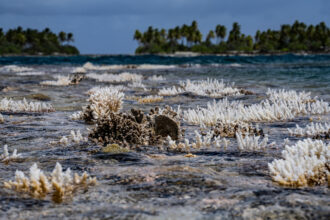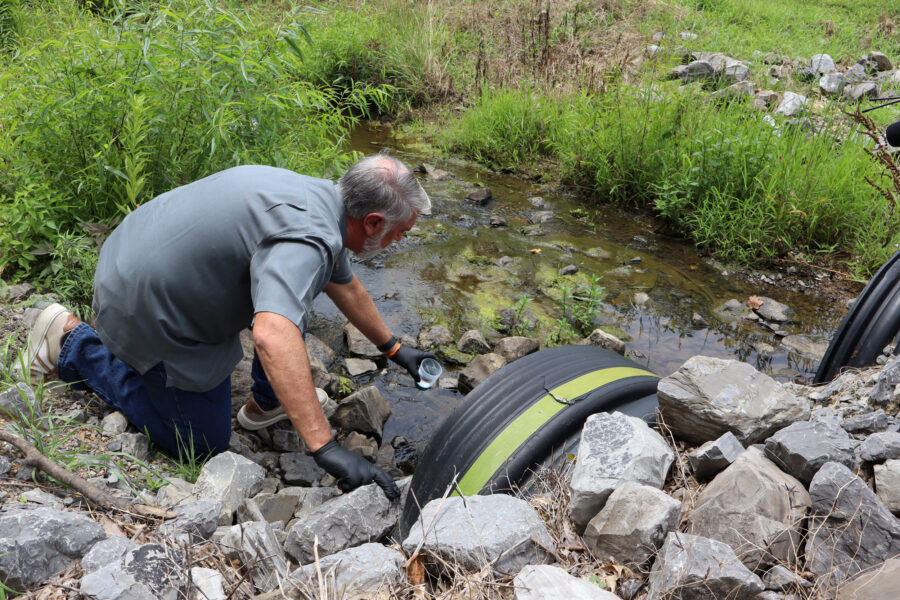A U.S. judge on Tuesday dismissed the most serious claims in a lawsuit brought by a Canadian logging company that accused Greenpeace and another advocacy group of running a criminal enterprise to damage the company.
The case, and a similar one filed later by the developer of the Dakota Access oil pipeline, had gained the attention of civil liberties and environmental advocacy organizations who warned it could set a dangerous precedent if it were allowed to proceed.
(Read: Industry Lawsuits Try to Paint Environmental Activism as Illegal Racket)
These groups argued that the lawsuit, filed by Resolute Forest Products, aimed to silence legitimate advocacy by characterizing the basic elements of activists’ campaign work as a criminal conspiracy.
By invoking the Racketeer Influenced and Corrupt Organizations Act, or RICO, a federal conspiracy law that was devised to ensnare mobsters, the lawsuit threatened the defendants with a lengthy and complex legal battle and potentially hundreds of millions of dollars in damages.
“The judge’s decision to throw out the abusive racketeering charges is a positive development and a win for advocacy,” said Tom Wetterer, general counsel for Greenpeace USA, in a statement. “From day one, it was clear Resolute intended to bully legitimate advocacy organizations and forest defenders by abusing laws designed to curtail the mafia.”
While U.S. District Judge Jon S. Tigar dismissed the racketeering claims, he also ruled that defamation and unfair competition claims against Greenpeace could continue. All of the claims again the other organization, Stand.earth, were dropped.
This was the second time Tigar has ruled in the case. In 2017, he dismissed the entire lawsuit but allowed Resolute to refile the allegations in a more focused complaint.
The environmental groups had been campaigning against Resolute for years, arguing that its logging practices were particularly damaging. The lawsuit grew out of statements Greenpeace made in which it erroneously said Resolute was logging in a particular protected forest. Greenpeace later retracted the statements. The judge ruled the defamation case over this question could proceed.
Michael Bowe, a lawyer representing Resolute, welcomed that development.
“We are pleased that the Court has correctly held that Resolute has properly alleged defamation and unfair competition claims and we will be proceeding aggressively through discovery to trial,” Bowe said.
In the Dakota Access case, a federal judge in North Dakota dismissed the racketeering case against some defendants, but the charges against Greenpeace are still pending. [Update: On Feb. 14, U.S. District Judge Billy Roy Wilson dismissed all the charges against Greenpeace and the other remaining defendants in the Dakota Access case, writing that the allegations fell “far short of what is needed to establish a RICO enterprise.”]
About This Story
Perhaps you noticed: This story, like all the news we publish, is free to read. That’s because Inside Climate News is a 501c3 nonprofit organization. We do not charge a subscription fee, lock our news behind a paywall, or clutter our website with ads. We make our news on climate and the environment freely available to you and anyone who wants it.
That’s not all. We also share our news for free with scores of other media organizations around the country. Many of them can’t afford to do environmental journalism of their own. We’ve built bureaus from coast to coast to report local stories, collaborate with local newsrooms and co-publish articles so that this vital work is shared as widely as possible.
Two of us launched ICN in 2007. Six years later we earned a Pulitzer Prize for National Reporting, and now we run the oldest and largest dedicated climate newsroom in the nation. We tell the story in all its complexity. We hold polluters accountable. We expose environmental injustice. We debunk misinformation. We scrutinize solutions and inspire action.
Donations from readers like you fund every aspect of what we do. If you don’t already, will you support our ongoing work, our reporting on the biggest crisis facing our planet, and help us reach even more readers in more places?
Please take a moment to make a tax-deductible donation. Every one of them makes a difference.
Thank you,













